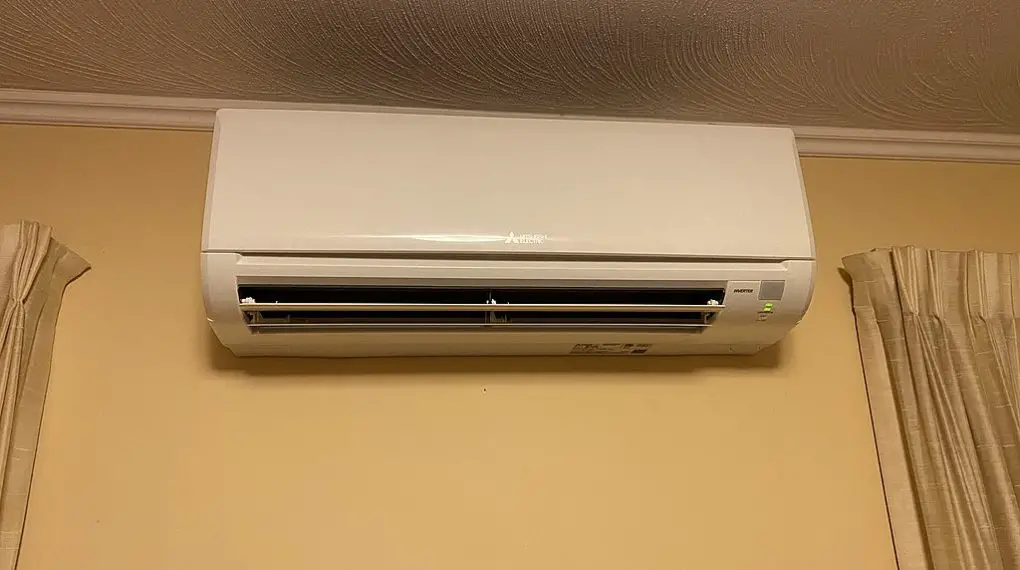Fixed speed vs inverter AC – what’s the difference, and which one should you choose for your home? This guide has all the answers.

Table of Contents
Comparison: Fixed Speed vs Inverter AC
Let’s compare these ACs head-to-head on some key factors.
Energy efficiency
Inverter ACs are generally more energy-efficient than fixed-speed ACs. But how does that translate to real-life usage?
Energy consumption patterns
Inverter ACs adjust their compressor speed to match the cooling demand, which means they consume less energy than fixed-speed ACs, which cycle on and off. This can result in significant energy savings over time.
Impact on utility bills
Because inverter ACs are more energy-efficient, they can help lower your utility bills compared to fixed-speed ACs. Who doesn’t love saving money?
Performance and comfort
When it comes to keeping your home comfortable, both fixed-speed and inverter ACs get the job done. But which one does it better?
Temperature control and stability
Thanks to their variable-speed compressors, Inverter ACs offer more precise temperature control and stability. This means fewer temperature fluctuations and a more comfortable living environment.
Noise levels
As we mentioned earlier, inverter ACs generally operate more quietly than fixed-speed ACs. If a peaceful home is important to you, this might tip the scales in favor of an inverter AC.
Maintenance and lifespan
Regarding maintenance and the lifespan of your air conditioner, there are some differences between fixed-speed and inverter ACs.
Frequency of maintenance requirements
While fixed-speed ACs have a simpler design and may require less frequent maintenance, the more advanced technology in inverter ACs can lead to more complex maintenance needs. It’s essential to weigh the pros and cons of each option.
Expected lifespan of the compressor and other components
Inverter ACs often have a longer lifespan due to their variable-speed compressors, which experience less wear and tear. However, this may be offset by the complexity of their design and potential maintenance challenges.
Cost analysis
When deciding between fixed speed and inverter ACs, it’s crucial to consider both the upfront cost and the long-term operational costs.
Initial purchase cost
Fixed-speed ACs typically have a lower upfront cost, while inverter ACs are more expensive. But don’t forget to factor in the potential energy savings of an inverter AC over time.
Long-term operational costs
Inverter ACs may have higher upfront costs, but their energy efficiency can lead to lower utility bills and long-term operational costs. It’s essential to weigh these factors when making your decision.
Check out these other related articles…
Inverter AC Gree: The Ultimate Homeowners’ Guide
Inverter AC Haier: A Homeowner’s Guide to Cool Comfort
1-Ton Inverter AC: Your Ultimate Guide
Inverter AC Power Consumption Calculator: The Ultimate Guide
Inverter AC Hot and Cold: Your Guide to Year-Round Comfort
Choosing the Right Air Conditioner for Your Needs
Ultimately, the decision between fixed speed and inverter ACs comes down to your personal needs and preferences. Here are some factors to consider when making your choice:
Assessing personal requirements
Before making a decision, it’s important to evaluate your specific needs, including:
Budget considerations
Consider your budget when choosing between fixed-speed and inverter ACs. While fixed-speed ACs have a lower upfront cost, inverter ACs may save you money in the long run due to their energy efficiency.
Size of the space
Think about the size of the space you need to cool. Inverter ACs may be more efficient for larger areas, while fixed-speed ACs might be sufficient for smaller rooms.
Usage patterns
Consider your usage patterns – do you use your air conditioner frequently, or only occasionally? If you rely heavily on your AC, an inverter AC’s energy efficiency and precise temperature control may be worth the investment.
Evaluating the benefits and drawbacks of each option
Take the time to weigh the pros and cons of fixed speed and inverter ACs, considering factors such as energy efficiency, performance, maintenance, and cost.
Seeking professional advice
If you’re still unsure which air conditioner is right for you, don’t hesitate to consult with professionals for guidance.
Consulting with HVAC experts
Reach out to local HVAC experts for their recommendations based on your specific needs and situation. They can provide valuable insight and help you make the best decision for your home.
Reading product reviews and consumer reports
Don’t forget to check out product reviews and consumer reports to see what other homeowners have experienced with different air conditioner models. This can help you gain a better understanding of the pros and cons of each option and make a more informed decision.